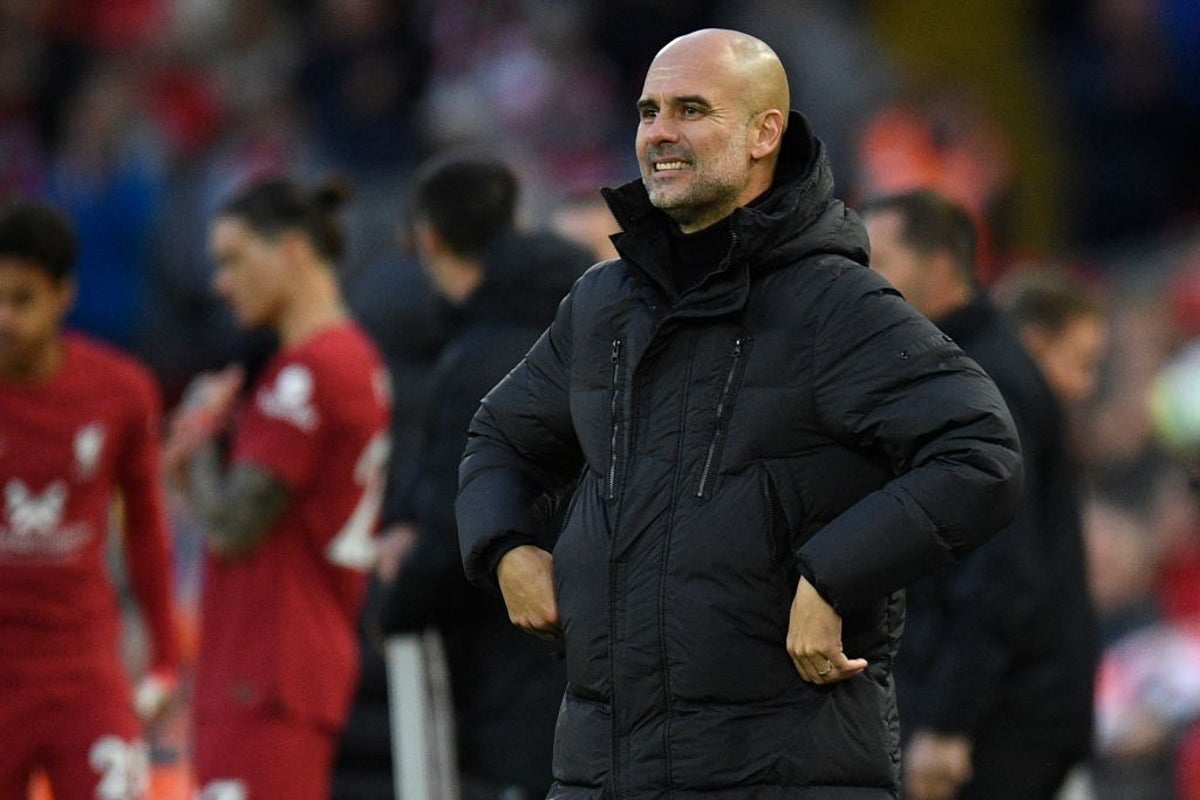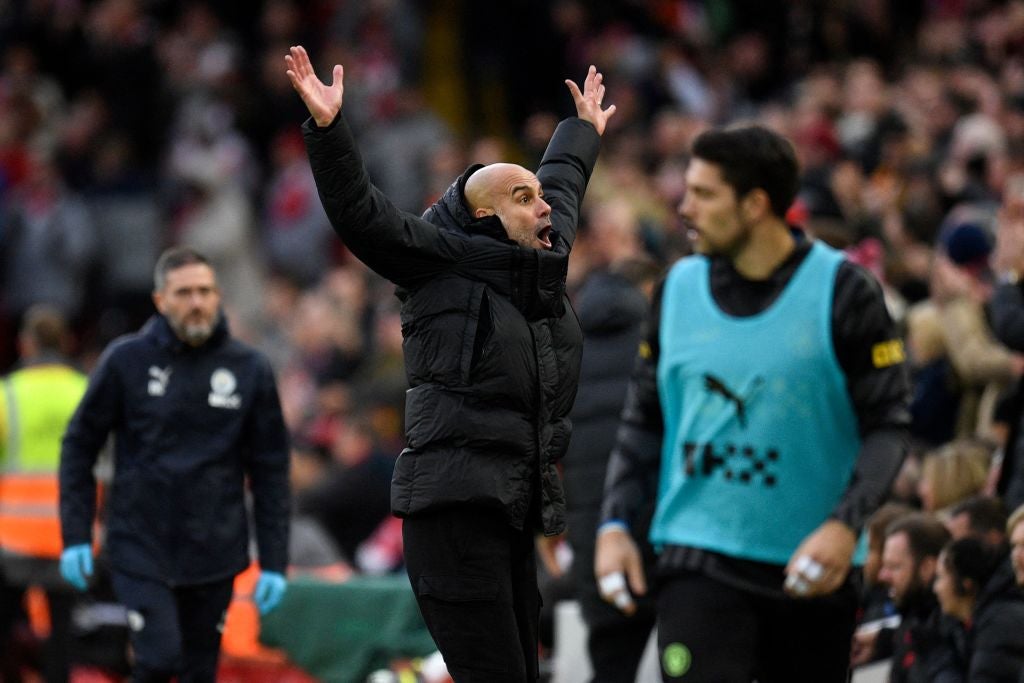
Why has Pep Guardiola never managed to win in front of an Anfield crowd as a manager? Why have Jurgen Klopp’s Liverpool provided him with the most competitive, the most keenly fought and the most fiercely contested rivalry of his managerial career, but especially when on home soil? What is it about this ground specifically? Guardiola tried to provide an answer for that heading into Sunday.
“Basically because they have a good team,” he claimed. “Of course the crowd is involved in every stadium but basically because they have a good team.” The thing was, that did not sound especially convincing.
Of course, he was right that Liverpool’s quality is the greatest factor, even if we all needed a reminder of it leading up to a 1-0 victory for Klopp’s side which has the potential to reinvigorate their season. The gap to the champions is still in double figures but down to 10 points now, with a game in hand too. Klopp has repeatedly talked down the prospect of any title challenge as their campaign has unravelled over recent weeks. But others believed.
Guardiola refused to count Liverpool out - insisting that they, not top-of-the-table Arsenal, are still City’s biggest threat.
That was not least because he knew that, in only a few days’ time, he would have to come here. And despite what he says, if his respect for Liverpool as a team is total, he holds Anfield in equal regard. He would eventually, when pushed, describe the atmosphere as “one of the biggest ones, one of the nicest ones, and it's a joy to be there” in the build-up.
But even that does not perhaps tell the full story. Guardiola certainly has not seemed to enjoy himself much on that touchline over the years. Whether sarcastically applauding the referee, haranguing the fourth official or shouting a plaintive cry of “twice!” into the stands, he has never seemed to be having an especially nice time either.
Ultimately, he - like many other managers - buys into the legend of Anfield, that the crowd can turn the game against a team, specifically his. And the thing about such legends is that they only matter as much as you believe in them.
Before the disallowed Phil Foden goal that ignited this game, the crowd was not having much of a bearing on proceedings. They had just witnessed a first half that was short of the quality that we have come to expect from this fixture, albeit one where Erling Haaland lurked menacingly, spurning the best opportunities of either side. Guardiola sat down in the visiting dugout at the start of the second half and immediately put his head in hands, still trying to compute a way to win.
Yet when Foden’s goal was chalked off on review for a shirt pull by Haaland, that cold calculation went out the window.
When the crowd finally had something of substance to celebrate, Guardiola joined in. Wheeling and waving his arms in the air in tandem with the rival supporters behind, the same Basil Fawlty schtick witnessed on this ground before, was the sort of pantomime act that only energises a crowd.
He had become the conductor of exactly the sort of atmosphere that visitors to Anfield hope to avoid.
Seconds later, when Diogo Jota headed a Liverpool counter-attack against the top of the crossbar and his team-mates turned to rev up the crowd, the City manager joined in again, then started pointing to the ground beneath his feet, shouting: “This is Anfield, this is Anfield!”
From that point, the game became a frantic, frenzied mess - just about the opposite of the command and control on which Guardiola’s near-domination of English football over the past five years has been built.

Guardiola repeated the same line - “This is Anfield” - when asked for his opinion on the disallowed goal post-match. At some point between those two confrontations with the Main Stand, it is alleged that coins were thrown at Guardiola from the crowd. “Next time they will do it better. They didn't get me,” he said. “They tried but didn't get me. They got it on the coach years ago but not this time.”
His explanation for this jousting with the fans was simple. “They shout, we shout more.” This was after criticising his players in their last two outings against Liverpool as “soft”.
At the sound of the final whistle, he made a point of getting them to go over to the travelling support and applaud their efforts. Guardiola knows that the sound and fury of football is just as important as its more cerebral elements. That sometimes you need more than just “a good team”.
Yet for City, this was yet another visit to Anfield where Guardiola started by playing against the team out on the pitch and, as it proceeded, instead began to play the crowd. For as long as that happens, you imagine the greatest managerial talent of his generation’s strange curse on this ground will go on.







